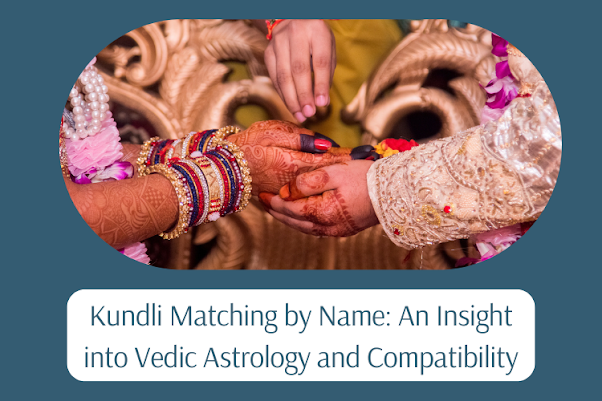Kundli matching, a time-honored practice in Vedic astrology, plays a significant role in Indian matrimonial traditions. The concept revolves around assessing the compatibility of two individuals based on their horoscopes, also known as ‘kundlis.’ Traditionally, kundlis are created using detailed birth information, including the exact time and place of birth. However, an alternative method, kundli matching by name, has also gained popularity. This approach uses the names of the prospective bride and groom to determine their compatibility. This article delves into the nuances of kundli matching by name, its methods, benefits, and limitations.
The Basics of Kundli Matching
Kundli matching, or ‘Guna Milan,’ evaluates the compatibility of two individuals through an intricate system that examines various aspects of their personalities, life goals, and potential challenges. The primary objective is to ensure a harmonious and prosperous marital life. This process involves comparing 36 points or ‘gunas,’ which are distributed across eight categories, known as ‘Ashtakoot.’
These categories include:
1. Varna (Caste): Reflects the spiritual compatibility and mutual respect.
2. Vashya (Control): Indicates the power dynamics between the couple.
3. Tara (Star): Assesses health and well-being.
4. Yoni (Animal Type): Represents sexual compatibility.
5. Graha Maitri (Planetary Friendship): Measures psychological compatibility.
6. Gana (Temperament): Reflects the nature and behavior.
7. Bhakoot (Relative Influence of Moon): Considers family and financial stability.
8. Nadi (Pulse): Indicates health and progeny prospects.
Kundli Matching by Name: An Overview
Kundli matching by name simplifies the traditional process by using the individuals' names. This method primarily relies on numerology and the vibrational qualities of the names to determine compatibility.
Here’s how it works:
1. Numerology Calculation: Each letter in the names of the individuals is assigned a numerical value. The sum of these values is calculated to derive a single-digit or compound number representing the name's vibrational essence.
2. Sound and Phonetics: The sounds and syllables in the names are analyzed to understand the inherent qualities and energies.
3. Name Compatibility: The numerical values and phonetic qualities of both names are compared to determine compatibility. This comparison helps identify harmonious, neutral, or conflicting energies.
Benefits of Kundli Matching by Name
1. Simplified Process: Unlike traditional kundli matching, this method does not require detailed birth information, making it accessible to more people.
2. Quick and Convenient: It offers a quicker way to assess compatibility, which can be particularly useful in the initial stages of a relationship.
3. Name Vibrations: Names are believed to carry significant vibrational energies that influence personality traits and life paths. Matching by name taps into these energies.
Limitations of Kundli Matching by Name
1. Less Comprehensive: This method is less detailed compared to traditional kundli matching, which considers planetary positions and astrological aspects.
2. Numerology-Based: It primarily relies on numerology, which may not encompass the full spectrum of astrological insights.
3. Cultural Preferences: In many cultures, traditional kundli matching holds a higher significance due to its detailed analysis and historical relevance.
Conclusion
Kundli matching by name is a modern adaptation of an ancient practice, offering a simplified and accessible way to assess compatibility. While it may not provide the depth of traditional methods, it serves as a useful tool for preliminary compatibility checks. As with any astrological practice, it is important to approach online kundli matching with an open mind, understanding its benefits and limitations. Whether using names or detailed birth charts, the ultimate goal remains the same: to foster a harmonious and fulfilling marital relationship.

Comments
Post a Comment